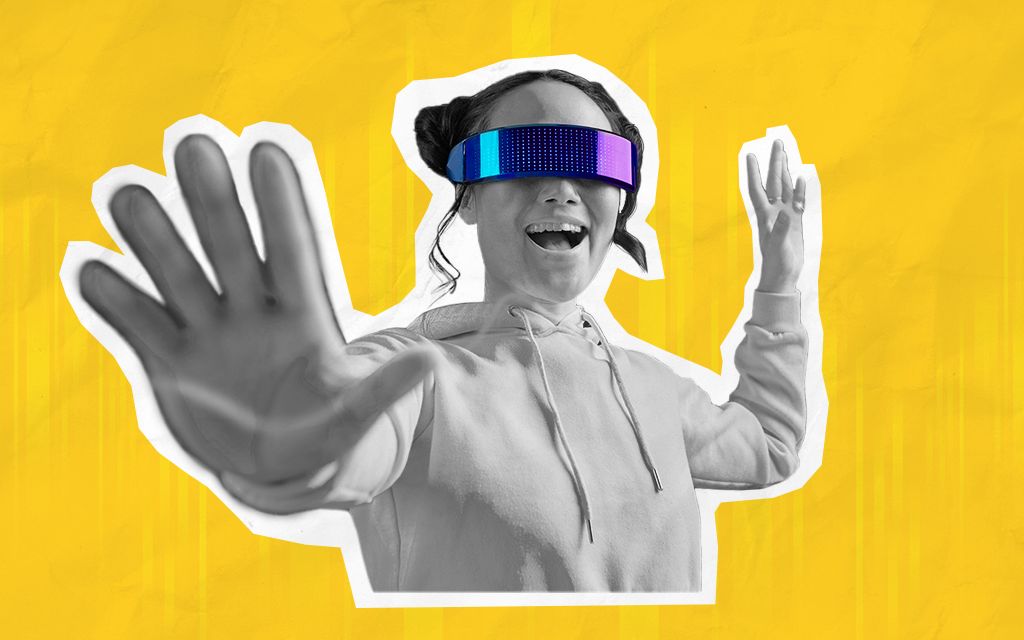It feels like a lifetime ago when Mark Zuckerberg embraced the idea of The Matrix by announcing the development of Metaverse. In a time when the pandemic and climate change dominated the news, and billionaires are flying to space, the social media mogul wanted to offer people an escape from reality by living in a simulation.
While this sounds like the premise of a science fiction novel, it’s no longer fantasy. In a letter, Mark Zuckerberg describes the defining quality of the metaverse as a “Feeling of presence — like you are right there with another person or in another place. Feeling truly present with another person is the ultimate dream of social technology.”
The metaverse is a virtual reality platform that allows users to access an interactive and immersive environment through Second Life or VRChat. People can engage in real-time interactions with digital objects and other individuals in a shared virtual world or universe.New York Times writer Brian X. Chen writes “The metaverse is the convergence of two ideas that have been around for many years: virtual reality and a digital second life.”

Half a year in, where has Facebook’s hype about the metaverse disappeared to?
The unveiling of the Metaverse also means adopting a forward-looking strategy for advertising. While the impact of the Metaverse is yet to be realised, a few brands are setting up digital goods, virtual storefronts, and content that can be consumed within the metaverse.
Google has been developing metaverse-related technologies for decades, while Microsoft is now starting to acquire companies that could be the building blocks for the metaverse. If early adoption is successful, more tech companies will follow suit, and soon, it will be integrated into daily life. We will start to see a shift towards more personalised, interactive advertising experiences that are bespoke to individual user’s interests and preferences.
Brands will need to evolve in the Metaverse, as creativity and innovation are at the forefront of the new platform. To succeed you’ll need to prioritise immersive experiences designed specifically for virtual environments as this new platform promises highly engaged and active communities of users.
We can say early adoption isn’t there, yet. All the work about Metaverse in the past year and a half has been nascent. While there’s significant development, the technology is still in its early stages and has not yet reached its full potential. The Metaverse is still a new concept that needs a lot of work before it can be considered a fully established technology.
The world is seemingly going back to normal after years of restrictions and work-from-home. Big companies are encouraging their employees to return to the office so time spent outdoors is at an all time high. This impacts Mark Zuckerberg’s vision of people remaining indoors and spending time using the Metaverse for meetings, hoping that we will favour virtual reality rather than the real world.
In addition, Meta, Facebook’s parent company, announced a series of layoffs last year as it continues to cut costs. They recently reduced their workforce by 13% and implemented a hiring freeze until the first quarter of 2023. While building the Metaverse, the company experienced significant financial loss, with a reported $9.4 billion loss in the first nine months of 2022.
Despite the losses and layoffs, Zuckerberg still believes in the Metaverse. He has unwavering confidence that it is the next big thing even though Meta’s very own employees are not using the platform because the use of VR headsets may cause discomfort or illness in certain users.
The potential of the Metaverse is huge. It will be able to provide advertisers with more data and insights into their target audiences, while brands can gather information about user behaviour, preferences, and engagement levels, which can help them create more targeted and effective advertising campaigns.
Even if it’s still quite early, brands need to prepare for the next evolution of the internet. Researching and preparing for new technologies and platforms, such as the Metaverse is critical to staying ahead of the competition and meeting consumer expectations.
Don't be shy — say hello and we'll be glad to kickstart your next exciting digital marketing journey.